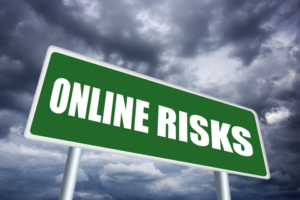Managing Your Online Reputation
You’ve been “Googled.” No matter how small a speck you think you are in this universe, you have without a doubt created an online footprint that is attached to your name. Chances are high that someone out there has followed this footprint of yours via a Google search.
 Whether by a business colleague, family member or even a significant other, it’s reasonable to assume that your name will be “searched” online for personal information about you. But, what are the results of these searches? Are you comfortable with what they might have discovered?
Whether by a business colleague, family member or even a significant other, it’s reasonable to assume that your name will be “searched” online for personal information about you. But, what are the results of these searches? Are you comfortable with what they might have discovered?
Online reputations are a part of everyday life that should not be taken for granted; they can be key factors in finding (and keeping) a job, not to mention personal and professional relationships.
Make sure your online reputation isn’t tarnishing your personal image. First step: search yourself! You can use any or all of the popular search engines, such as Bing and Google. You will want to make sure to view the search results when you’re logged in and out of your browser, as this can alter the outcome. Results can be different depending on many factors including the type of web browser, geographic location, web history or data center that is serving up the search results. You may be surprised to find that there is negative information you’ll want to get rid of.
If this is the case, and you want to remove some damaging results, you can use this link for Google and this link for Bing to request the removal of particular search results.
Use these tips to ensure your online reputation isn’t susceptible to generating negative search results:
- Set your social media accounts to private to prevent unwanted retweets, shares, likes and posts (and think before you post).
- Review the privacy settings for your social media accounts so that people aren’t seeing things you don’t want them to see.
- Review all of your avatars. They are the world’s first impression of you, even if it’s obviously not you (e.g., an image of an evil dictator).
- Review photos of yourself. Duck-face mirror selfies and party pictures are a major red flag. Remove any other unfavorable pictures that may lead to negative search results.
- Remove any insulting or otherwise negative comments you may have made.
- Now add in some information that elevates you.
- Never drink while posting. While PUI’s are legal, you could regret it.
There are also ways to build up your online reputation:
- Check out online portfolio sites such as me, About.me and Seelio. These can help you to build your digital identity through a single website that showcases all of the positive information from your varying social media accounts.
- Signing up with services such as Youtube or Flickr where you can promote your skills can also be a big reputation boost.
- Another option is to create your own personal website domain, where you can represent yourself or your brand in whatever light you choose.
- Look into online reputation management companies. Expect to pay some dough, but there’s nothing like having all that bad stuff swept under the rug.
Whether it is through posts, updates, or even mobile phones tracking location, just about every part of your daily life is somehow tied to your online profiles. This influx of time spent connected makes managing your online reputation a clear necessity to ensure the face-to-face image that you project into the world, matches the one linked to you online.
Robert Siciliano is an Online Safety Expert to Intel Security. He is the author of 99 Things You Wish You Knew Before Your Mobile was Hacked!


























